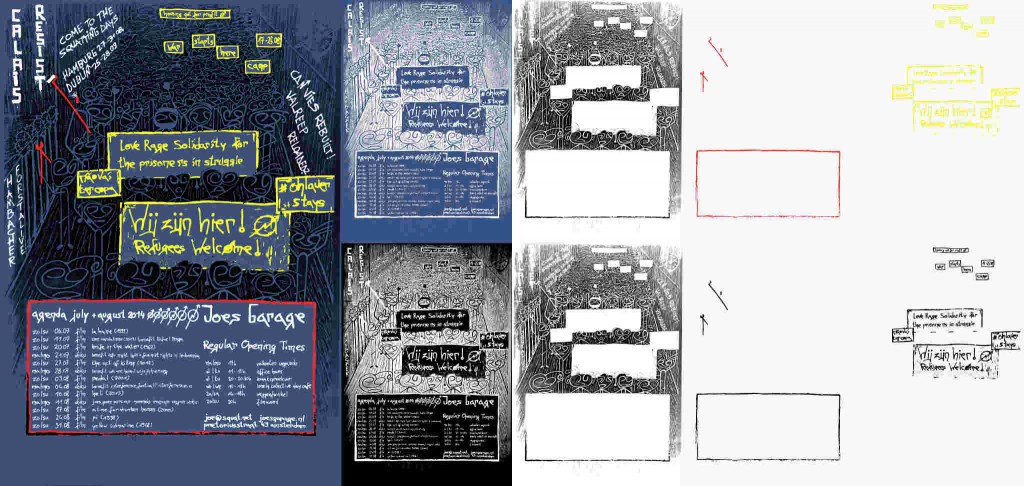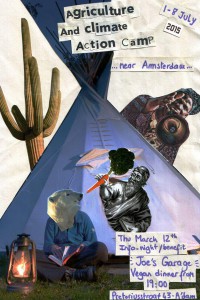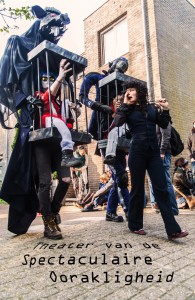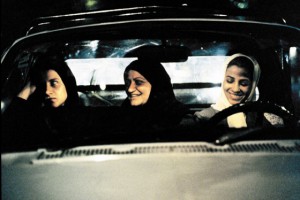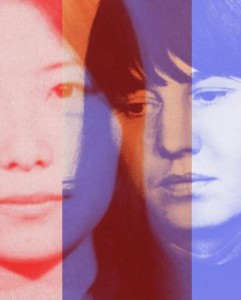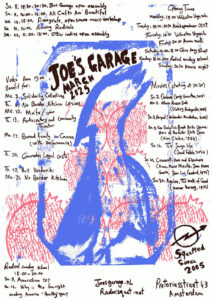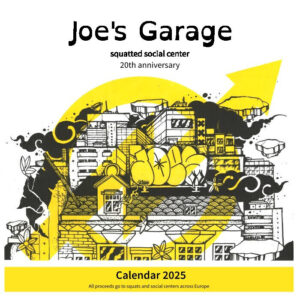Sunday March 15th 2015. Pride by Matthew Warchus (UK, 2014, 119 minutes). In English. Door opens at 8pm, film begins at 9pm. Free admission.

Tonight we are showing “Pride”. This movie has been released 2014 and has been received mostly very well among its audience, especially due to its narrative of cross solidarity between two particular and disconnected struggles that took place in the UK around the year of 84/85…
Wikipedia says about the movie:
Based on a true story, the film depicts a group of lesbian and gay activists who raised money to help families affected by the British miners’ strike in 1984, at the outset of what would become the Lesbians and Gays Support the Miners campaign. The National Union of Mineworkers was reluctant to accept the group’s support due to the union’s public relations’ worries about being openly associated with a gay group, so the activists instead decided to take their donations directly to Onllwyn, a small mining village in Wales, resulting in an alliance between the two communities. The alliance was unlike any seen before but was successful.
… and the Guardian adds:
In a decade when a degree of homophobia was the norm, LGSM (Lesbians and Gays Support the Miners) drove a couple of minibuses from Hackney Community Transport and a clapped-out VW camper van to a bleak mining town in South Wales to present their donations, uncertain what sort of welcome to expect. The events that unfolded said a lot about what it means to be empathetic, to overcome dissent and face common enemies: Thatcher, the tabloids, the police. They told a story about solidarity.
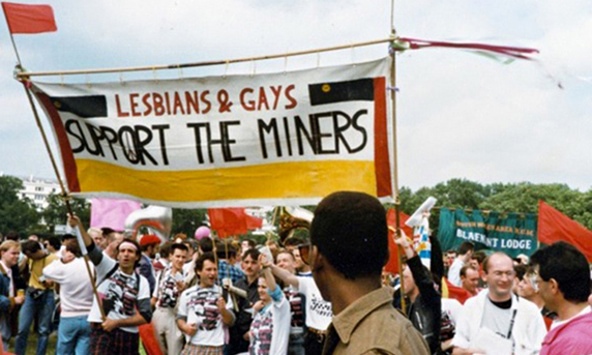
Besides the question of solidarity, which is an actual question still today, when thinking about solidarity and cooperation between our own local struggles of our daily life’s in the cities, neighborhoods and communities we are living in, but also globally when thinking about Gezi, Kobane, Ferguson or the Mediterranean Sea (just to name a few) there is another interesting theme to observe in “Pride”: the question of stereotypes that seem to emerge within the movie when it talks about the two movements in struggle and the question of media power when perceiving those emerging images.
Probably mainly for storytelling reasons, “Pride” portrays a large fraction of the miners in the village of Onllwyn as a relatively conservative, thus homophobic bunch of people, that does not want to have gays and lesbians supporting their struggle. In the movie, this situation will eventually be dissolved and overcome by LGSM, even though parts of LGSM did not seem to be comfortable with the idea of visiting the village of the miner community in the first place.
After the film has been released, former LGSM members explained that this reality was slightly different: LGSM activists did not perceive homophobic tendencies among the miners, that the majority of the communities were conscious about homosexuality and that they overruled those minor fractions within their communities that were clearly homophobic. The miners came to their stance against homophobia before LGSM visited them for the first time, and their first encounters were more welcoming and supportive as portrayed in the movie.
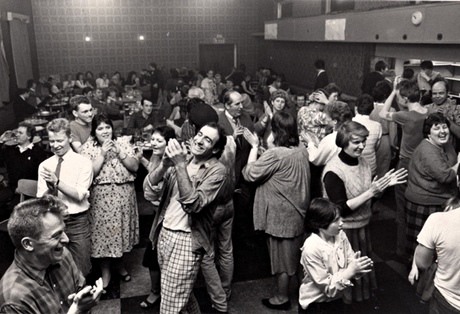
In fact, the miners themselves had to struggle against a hard smear campaign initiated by British media all over the country, being portrayed as backward rednecks by media institutions that came up with absurd facts and stories aiming to discredit the miners and their struggle. It may be the only really unnecessary tendency in Pride, that it uses a similar strategy then the media of that time (on a different scale and for different purposes of course), and by that reproduces the very stereotypes that it aims to dissolve by telling this story of solidarity.
In order to dig into that situation a bit deeper we are also going to show a short documentary about the miners strike produced by LGSM in 1985. For further information, take a look at the following collection of texts about the situation in the UK during that times.
For a first reading, a quite nice interview has been made with one of the former LGSM members Ray Goodspeed who gives an insight into the context of that time and differences between the movie and history: Dear Love of Comrades: The politics of Lesbians and Gays Support the Miners.
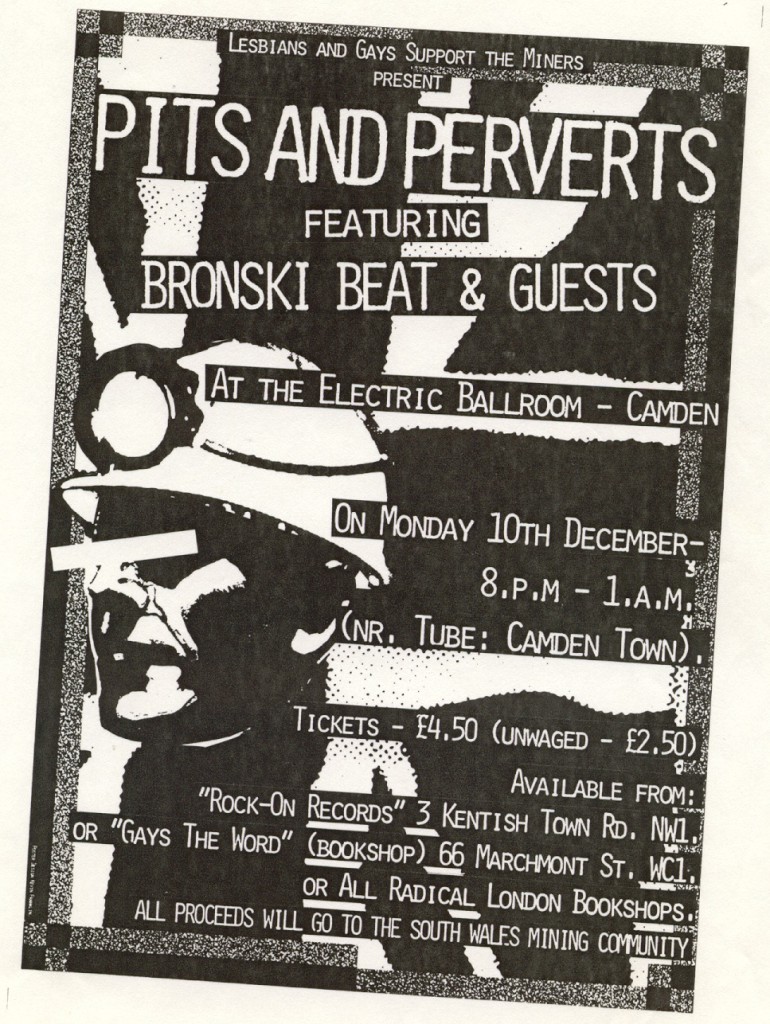
Some collection of texts about the miners strike 1984-85
https://libcom.org/tags/miners-strike
http://www.gayinthe80s.com/tag/lesbians-and-gays-support-the-miners/
Spanish anarchists in the Welsh valleys
https://libcom.org/history/spanish-anarchists-welsh-valleys
Tell us lies about the miners
https://libcom.org/history/tell-us-lies-about-miners-dave-douglass
Lesbians and Gays Support the Miners in their protests for ‘Coal not Dole’
https://unlockideas.wordpress.com/2014/01/31/lesbians-and-gays-support-the-miners-in-their-protests-for-coal-not-dole/
Pride: The UK miners’ strike through the distorted mirror of identity politics
https://www.wsws.org/en/articles/2014/10/29/prid-o29.html
Film night at Joe’s Garage, cozy cinema! Doors open at 8pm, film begins at 9pm, free entrance. You want to play a movie, let us know: joe [at] squat [dot] net
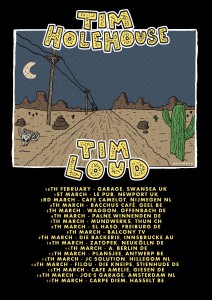 Monday March 16th 2015, Singer songwriters: Tim Loud and Tim Holehouse. Volkseten Vegazulu at 7pm, then live music directly after the food, between, 8:30 and 10pm. Donations welcome.
Monday March 16th 2015, Singer songwriters: Tim Loud and Tim Holehouse. Volkseten Vegazulu at 7pm, then live music directly after the food, between, 8:30 and 10pm. Donations welcome.



